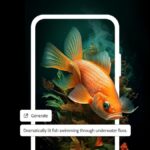“I’m bored.” — Good. You might be on the brink of your next great idea.
As a product designer at Meta working on cutting-edge GenAI and monetization tools, my life is optimized for output. Every hour has a task, every meeting has a purpose, and every design has a metric attached. But somewhere in that chaos, I noticed something strange: my biggest creative leaps came not during hackathons or brainstorms, but during mindless walks, long showers, or the brief, golden void between meetings. That space, where your brain wanders, aimless and unoptimized, is not wasted time. It’s cognitive compost. And in a culture obsessed with productivity, it’s time we reclaim it.
“Creativity is the Residue of Time Wasted” — Albert Einstein
In a world obsessed with productivity, stimulation, and constant motion, boredom has become the villain. We treat it like a sickness , one to be cured with scrolling, bingeing, or multitasking. But what if boredom isn’t a bug in our system… What if it’s the feature that fuels our most creative breakthroughs?
Here’s the truth: boredom is the overlooked catalyst behind true innovation. And we’re suffocating it to death.
Let’s get scientific for a second. When you’re bored, your brain activates what’s called the default mode network (DMN), a group of interconnected brain regions associated with introspection, imagination, memory recall, and future planning. Translation? Your brain starts free-associating, connecting dots that seemed unrelated just moments before. This is where new ideas are born!
You’re not brainstorming on a whiteboard. You’re daydreaming on a walk, staring at the ceiling, or sitting through a painfully slow meeting. Then — bam. Out of nowhere, you solve a problem that’s haunted you for weeks.
- People who engage in mind-wandering generate 42% more creative solutions to problems than those who don’t (Harvard Business Review)
- Boredom has been linked to enhanced divergent thinking, the foundation of creative ideation (Source)
Boredom, it turns out, is a mental incubator.
Innovators and Entrepreneurs have been sold a lie: that great ideas come from grinding, from long hours and relentless optimization. Sure, discipline matters to help execute the idea and make it happen. But truly original ideas don’t come when you’re frantically “doing” — they come when you stop.
Think about the most innovative people in history. Newton didn’t discover gravity while replying to emails. Archimedes wasn’t in a productivity workshop when he had his Eureka moment. Great ideas often strike when the mind is untethered.
Yet, in our dopamine-fueled culture, we kill that freedom. We sedate boredom with TikTok, Twitter, Reddit, Slack , an endless parade of low-value stimuli designed to keep our brains on a leash.
We’re overstimulated, over-scheduled, and under-inspired.
In a system that monetizes your attention, boredom is dangerous. It’s unprofitable. No one makes money when you stare out the window for twenty minutes. But you? That’s when you might come up with the next moonshot.
Choosing boredom , choosing space is how you reclaim your mind from the machine. It’s how you say, I refuse to be a pawn in the content economy. It’s how you begin to think your own thoughts again.
“You have to let yourself get so bored that your mind has nothing better to do than tell itself a story “— Neil Gaiman









